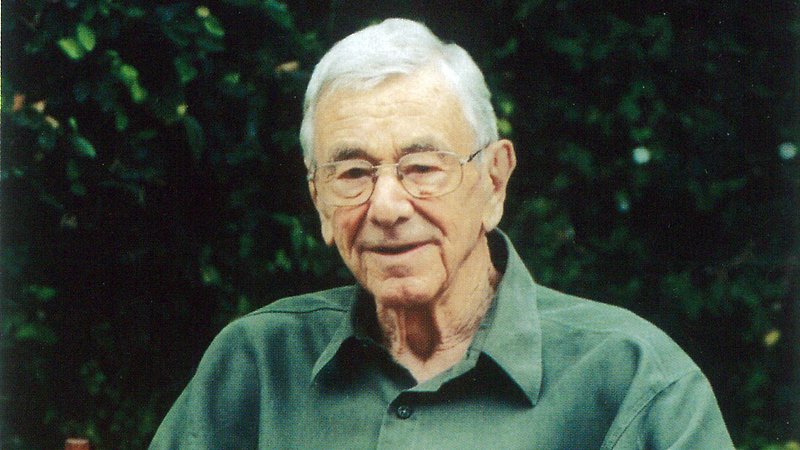
Screened as part of NZIFF 2001
Early Days Yet 2001
Why did Allen Curnow become so engaged with what he called ‘the dilemma of our New Zealandness’? How did he come to create such a compelling and controversial vision of what it means to be a New Zealander?
At the beginning of one of his great collections of New Zealand literature he wrote: ‘I have found myself piecing together the record of an adventure, or series of adventures, in search of reality – of which New Zealand has been the scene, containing the deserts and dragons as well as the forests and fountains. Reality must be local and special at the point where we pick up the traces.’
Curnow has continued his quest in search of the real New Zealand throughout his lifetime. He raises big questions but refuses to come up with big answers – instead, each work he writes is another journey, another ‘adventure in search of reality’, with brilliant descriptions of another piece of the jigsaw. For him the important thing is not so much the destination as the quest. I think this is why he has remained so extraordinarily sharp as a poet into his 80s – his senses are as vivid and his questions as challenging as ever.
His writing tracks his journey through the twentieth century – from 1911 to 1999 – from the mysteries of childhood to the mysteries of death (a force he has come face to face with, in the poems of the last decade). At the same time his work tracks the historical journey of New Zealand itself. He wrote about the Depression of the 1930s as a ‘shock’ that released the country from some of its illusions. The World War of the 1940s was another profound formative experience for the country. In the 30s and 40s Curnow was very much a South Island poet, then in the 50s he followed the trend of migration to Auckland, giving him new aspects of New Zealand society to explore. He has also traced his family history and written about the first British settlers, because their journey to this country (bringing so much European ‘baggage’ with them) provides a classic example of his idea of the ‘adventure in search of reality’…
At the age of 89 he continues his quest. He sees the country as older but in many respects not wiser. Today’s talented young people still grapple with the question of whether to stay or go. Meanwhile for Curnow each day is another journey – ‘the eye still scans risky horizons of its own’. — Shirley Horrocks